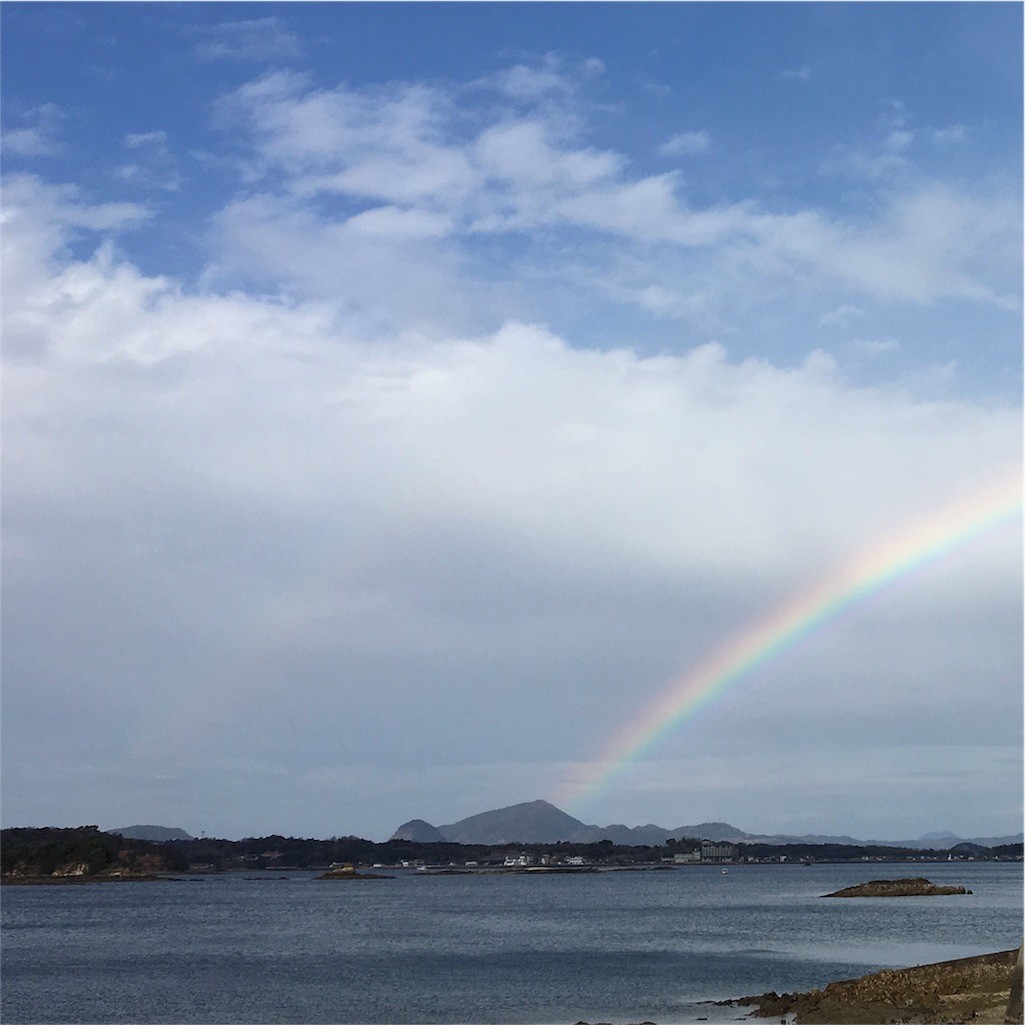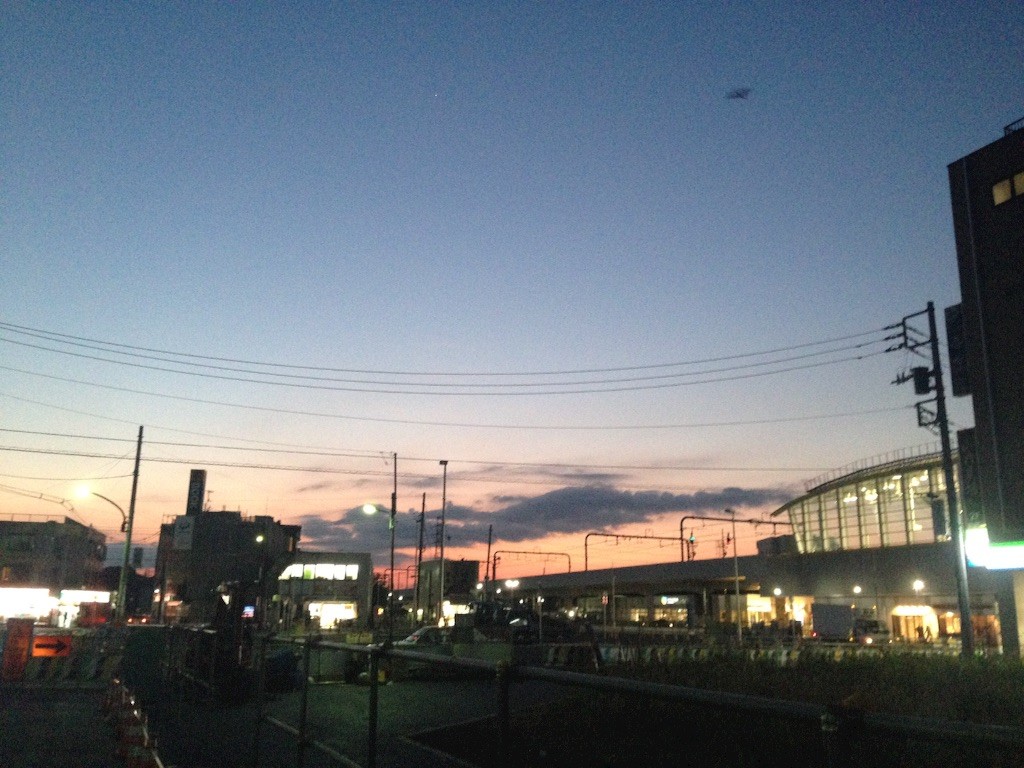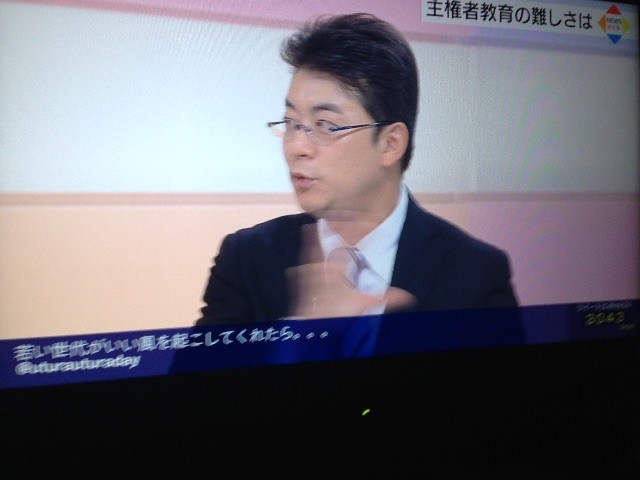日記をつける
ブログリハビリこんにちは。
昨日、今日とeラーニングの撮影だった。
講師は会社の関係者にお願いしたが、聞いててよかったと思えるいい内容だった。
講師からは「変化をリードする」「自分へのリーダーシップ」「直感力を鍛える」など、今日の講師は「『できる』までのプロセスには、『してる』『しっている』があり、この間に『意識している』がある」など、様々なキーワードが出てきた。
とくに自分を知り、常に行動を検証する習慣として「日記をつける」ことをオススメしていた。
これはいいね。
話を聞くなかでは、自分から質問がなかなかできておらず、その点が反省点。
言葉を受け止め、それをその場で考え検証し、質問として相手に伝えるというプロセスは訓練が不十分だったなあ。
このあたりでメモ的なリハビリ以上。
オバマ米大統領 広島演説 全文(朝日新聞訳)
読んでたら後半泣けた。

オバマ米大統領は27日、現職の米国大統領として初めて被爆地・広島を訪問し、演説した。「核なき世界」の実現に向け、「1945年8月6日の朝の記憶を薄れさせてはなりません」と訴えた。英語全文と朝日新聞による日本語訳は次の通り。(英語全文は日本時間28日のホワイトハウス発表を元に修正しています)
■「恐ろしい力に思いはせるため訪れる」
Seventy-one years ago, on a bright, cloudless morning, death fell from the sky and the world was changed. A flash of light and a wall of fire destroyed a city and demonstrated that mankind possessed the means to destroy itself.
Why do we come to this place, to Hiroshima? We come to ponder a terrible force unleashed in a not so distant past. We come to mourn the dead, including over 100,000 in Japanese men, women and children; thousands of Koreans; a dozen Americans held prisoner. Their souls speak to us. They ask us to look inward, to take stock of who we are and what we might become.
It is not the fact of war that sets Hiroshima apart. Artifacts tell us that violent conflict appeared with the very first man. Our early ancestors, having learned to make blades from flint and spears from wood, used these tools not just for hunting, but against their own kind. On every continent, the history of civilization is filled with war, whether driven by scarcity of grain or hunger for gold; compelled by nationalist fervor or religious zeal. Empires have risen and fallen. Peoples have been subjugated and liberated. And at each juncture, innocents have suffered, a countless toll, their names forgotten by time.
The World War that reached its brutal end in Hiroshima and Nagasaki was fought among the wealthiest and most powerful of nations. Their civilizations had given the world great cities and magnificent art. Their thinkers had advanced ideas of justice and harmony and truth. And yet, the war grew out of the same base instinct for domination or conquest that had caused conflicts among the simplest tribes; an old pattern amplified by new capabilities and without new constraints.In the span of a few years, some 60 million people would die ― men, women, children no different than us, shot, beaten, marched, bombed, jailed, starved, gassed to death.
There are many sites around the world that chronicle this war ― memorials that tell stories of courage and heroism; graves and empty camps that echo of unspeakable depravity. Yet in the image of a mushroom cloud that rose into these skies, we are most starkly reminded of humanity's core contradiction; how the very spark that marks us as a species ― our thoughts, our imagination, our language, our tool-making, our ability to set ourselves apart from nature and bend it to our will ― those very things also give us the capacity for unmatched destruction.
71年前、明るく、雲一つない晴れ渡った朝、死が空から降り、世界が変わってしまいました。閃光(せんこう)と炎の壁が都市を破壊し、人類が自らを破滅させる手段を手にしたことを示したのです。
なぜ私たちはここ、広島を訪れるのか。私たちはそう遠くない過去に解き放たれた恐ろしい力に思いをはせるために訪れるのです。10万人を超す日本人の男女そして子どもたち、何千人もの朝鮮人、十数人の米国人捕虜を含む死者を悼むために訪れるのです。彼らの魂が私たちに語りかけます。私たちに内省し、私たちが何者なのか、これからどのような存在になりえるのかをよく考えるように求めているのです。
広島を際立たせるのは戦争の事実ではありません。暴力を伴う紛争は太古の昔からあったことが古代の遺物からわかります。火打ち石から刃を作り、木からやりをつくることを学んだ私たちの祖先は、これらの道具を狩猟だけでなく、人間に対しても使ったのです。食糧不足、富への渇望、国家主義的な熱烈な思いや宗教的熱情に突き動かされ、世界のどの大陸でも文明の歴史は戦争にあふれています。いくつもの帝国の興亡があり、人々は服従を強いられたり、解放されたりしました。それぞれの時期に罪なき人たちが犠牲になり、その名は時がたつにつれて忘れられていきました。
広島と長崎で残酷な終結を迎えることになった世界大戦は、最も豊かで、最も力の強い国々の間で戦われました。それらの国の文明は世界に偉大な都市や素晴らしい芸術をもたらしました。思想家たちは正義や調和、真実に関する考えを生み出してきました。しかし戦争は、最も単純な部族間の紛争の原因となった、支配や征服をしたいという本能と同じ本能から生まれてきたのです。新たな能力によってその古いパターンが増幅され、ついには新たな制約がなくなってしまったのです。
数年の間で6千万人もの人たちが亡くなりました。男性、女性、子ども、私たちと何ら変わりのない人たちが、撃たれ、殴られ、行進させられ、爆撃され、投獄され、飢えやガス室で死んだのです。この戦争を記録する場所が世界に数多くあります。勇気や英雄主義の物語を語る記念碑、筆舌に尽くしがたい悪行を思い起こさせる墓地や無人の収容所です。
しかし、この空に立ち上ったキノコ雲のイメージのなかで最も、私たちは人間性の中にある根本的な矛盾を突きつけられます。私たちを人類たらしめているもの、私たちの考えや想像力、言語、道具をつくる能力、自然を自らと区別して自らの意思のために変化させる能力といったものこそが、とてつもない破壊能力を私たち自身にもたらすのです。
■「8月6日の記憶、薄れさせてはならぬ」
How often does material advancement or social innovation blind us to this truth. How easily we learn to justify violence in the name of some higher cause. Every great religion promises a pathway to love and peace and righteousness, and yet no religion has been spared from believers who have claimed their faith as a license to kill. Nations arise, telling a story that binds people together in sacrifice and cooperation, allowing for remarkable feats, but those same stories have so often been used to oppress and dehumanize those who are different.
Science allows us to communicate across the seas and fly above the clouds; to cure disease and understand the cosmos. But those same discoveries can be turned into ever-more efficient killing machines.
The wars of the modern age teach this truth. Hiroshima teaches this truth. Technological progress without an equivalent progress in human institutions can doom us. The scientific revolution that led to the splitting of an atom requires a moral revolution, as well.
That is why we come to this place. We stand here, in the middle of this city, and force ourselves to imagine the moment the bomb fell. We force ourselves to feel the dread of children confused by what they see. We listen to a silent cry. We remember all the innocents killed across the arc of that terrible war, and the wars that came before, and the wars that would follow.
Mere words cannot give voice to such suffering, but we have a shared responsibility to look directly into the eye of history and ask what we must do differently to curb such suffering again. Someday the voices of the hibakusha will no longer be with us to bear witness. But, the memory of the morning of August 6th, 1945 must never fade. That memory allows us to fight complacency. It fuels our moral imagination. It allows us to change.
And since that fateful day, we have made choices that give us hope. The United States and Japan forged not only an alliance, but a friendship that has won far more for our people than we could ever claim through war. The nations of Europe built a Union that replaced battlefields with bonds of commerce and democracy. Oppressed peoples and nations won liberation. An international community established institutions and treaties that worked to avoid war and aspire to restrict and roll back, and ultimately eliminate the existence of nuclear weapons.
Still, every act of aggression between nations; every act of terror and corruption and cruelty and oppression that we see around the world shows our work is never done.
物質的な進歩または社会的革新によって、私たちは何度この真実が見えなくなるのでしょうか。どれだけたやすく、私たちは何かより高い大義の名の下に暴力を正当化してきたでしょうか。あらゆる偉大な宗教が愛、平和、公正への道を約束しています。しかし、いかなる宗教も信仰が殺戮(さつりく)の許可証だと主張する信者から免れていません。
国家は人々を犠牲と協力で結びつける物語を伝え、顕著な業績を可能にしながら台頭します。しかし、それらの同じ物語は、幾度となく異なる人々を抑圧し、その人間性を奪うために使われてきました。
科学によって、私たちは海を越えて通信を行い、雲の上を飛び、病を治し、宇宙を理解することができるようになりました。しかし、これらの同じ発見は、これまで以上に効率的な殺戮の道具に転用することができるのです。現代の戦争は私たちにこの真実を教えてくれます。広島がこの真実を教えてくれます。
科学技術の進歩は、人間社会に同等の進歩が伴わなければ、人類を破滅させる可能性があります。原子の分裂を可能にした科学の革命には、道徳上の革命も求められます。だからこそ、私たちはこの場所を訪れるのです。私たちはここに、この街の中心に立ち、原子爆弾が投下された瞬間を想像しようと努めます。目にしたものに混乱した子どもたちの恐怖を感じようとします。私たちは、声なき叫びに耳を傾けます。私たちは、あの恐ろしい戦争で、それ以前に起きた戦争で、それ以後に起きた戦争で殺されたすべての罪なき人々を思い起こします。
単なる言葉だけでは、こうした苦しみに声を与えることはできません。しかし私たちは、歴史を直視する責任を分かち合っています。そして、こうした苦しみの再発を防ぐためにどうやり方を変えるべきなのかを問わねばなりません。いつか、証言するヒバクシャ(被爆者)の声が聞けなくなる日がくるでしょう。しかし、1945年8月6日の朝の記憶を薄れさせてはなりません。その記憶は、私たちが自己満足と戦うことを可能にします。それは私たちの道徳的な想像力を刺激し、変化を可能にします。
あの運命の日以来、私たちは希望をもたらす選択をしてきました。米国と日本は同盟だけでなく、私たちの市民に戦争を通じて得られるよりも、はるかに多くのものをもたらす友情を築きました。
欧州諸国は、戦場を通商と民主主義の絆に置き換える連合を築きました。抑圧された人々と国々は解放を勝ち取りました。国際社会は戦争を回避し、核兵器の存在を制限し、縮小し、最終的には廃絶するために機能する組織と条約をつくりました。
それでもなお、世界で目の当たりにする国家間のあらゆる攻撃的行動、あらゆるテロ、腐敗、残虐性、抑圧は、私たちの仕事に終わりがないことを物語っています。
■「広島と長崎、道徳的に目覚める始まり」
We may not be able to eliminate man's capacity to do evil, so nations ― and the alliances that we've formed ― must possess the means to defend ourselves. But among those nations like my own that hold nuclear stockpiles, we must have the courage to escape the logic of fear, and pursue a world without them.
We may not realize this goal in my lifetime. But persistent effort can roll back the possibility of catastrophe. We can chart a course that leads to the destruction of these stockpiles. We can stop the spread to new nations, and secure deadly materials from fanatics.
And yet that is not enough. For we see around the world today how even the crudest rifles and barrel bombs can serve up violence on a terrible scale. We must change our mindset about war itself ― to prevent conflict through diplomacy, and strive to end conflicts after they've begun; to see our growing interdependence as a cause for peaceful cooperation and not violent competition; to define our nations not by our capacity to destroy, but by what we build.
And perhaps above all, we must reimagine our connection to one another as members of one human race. For this, too, is what makes our species unique. We're not bound by genetic code to repeat the mistakes of the past. We can learn. We can choose. We can tell our children a different story ― one that describes a common humanity; one that makes war less likely and cruelty less easily accepted.
We see these stories in the hibakusha ―― the woman who forgave a pilot who flew the plane that dropped the atomic bomb, because she recognized that what she really hated was war itself; the man who sought out families of Americans killed here, because he believed their loss was equal to his own.
My own nation's story began with simple words: All men are created equal, and endowed by our Creator with certain unalienable rights, including life, liberty and the pursuit of happiness. Realizing that ideal has never been easy, even within our own borders, even among our own citizens.
But staying true to that story is worth the effort. It is an ideal to be strived for; an ideal that extends across continents, and across oceans. The irreducible worth of every person, the insistence that every life is precious; the radical and necessary notion that we are part of a single human family ― that is the story that we all must tell.
That is why we come to Hiroshima. So that we might think of people we love ― the first smile from our children in the morning; the gentle touch from a spouse over the kitchen table; the comforting embrace of a parent ― we can think of those things and know that those same precious moments took place here seventy-one years ago. Those who died ― they are like us. Ordinary people understand this, I think. They do not want more war. They would rather that the wonders of science be focused on improving life, and not eliminating it.
When the choices made by nations, when the choices made by leaders reflect this simple wisdom, then the lesson of Hiroshima is done.
The world was forever changed here. But today, the children of this city will go through their day in peace. What a precious thing that is. It is worth protecting, and then extending to every child. That is the future we can choose ― a future in which Hiroshima and Nagasaki are known not as the dawn of atomic warfare, but as the start of our own moral awakening.
私たちは、人間の悪をなす能力をなくすことはできないかもしれません。だからこそ、国家や私たちが作り上げた同盟は、自衛の手段を持たなければなりません。しかし、私の国のように核を保有する国々は、恐怖の論理にとらわれず、核兵器なき世界を追求する勇気を持たなければなりません。
私の生きている間に、この目標は実現できないかもしれません。しかし、たゆまぬ努力によって、悲劇が起きる可能性は減らすことができます。私たちは核の根絶につながる道筋を示すことができます。私たちは、ほかの国への核拡散を止め、狂信者たちから死をもたらす(核)物質を遠ざけることができます。
しかし、それでもまだ十分ではありません。なぜなら、粗製のライフルや樽(たる)爆弾でさえ、どれだけ恐ろしい規模の暴力を起こせるのか、私たちは世界で目の当たりにしているからです。私たちは戦争そのものへの考え方を変えなければいけません。それによって、外交を通じて紛争を防ぎ、すでに始まった紛争を終わらせる努力をしなければなりません。相互依存の高まりが、暴力的な競争の原因になるのではなく、平和的な協力を生むものだと考えるのです。そして、私たちの国家を、破壊能力によってではなく、何を築き上げるかで定義づけるのです。
そして、おそらく何にもまして、私たちは一つの人類の仲間として、互いの関係をつくり直さなければいけません。なぜなら、そのことも人類を比類なき種にしているものだからです。私たちは遺伝情報によって、過去の間違いを繰り返す運命を定められているわけではありません。私たちは学び、選ぶことができます。人類が共通の存在であることを描き、戦争をより遠いものにし、残虐な行為は受け入れられがたいような、異なる物語を私たちは子どもたちに伝えることができます。
私たちはこうした物語を、ヒバクシャの中にみることができます。原爆を投下した爆撃機のパイロットを許した女性がいます。なぜなら、彼女は本当に憎いのは戦争そのものだと分かっていたからです。ここで殺された米国人たちの家族を捜し出した男性がいました。なぜなら、彼は彼らの喪失は自分たちの喪失と等しいと信じていたからです。
私の国の物語はシンプルな言葉から始まりました。「すべての人は等しくつくられ、生命、自由、幸福追求を含む、奪われることのない権利を創造者から授けられた」。そうした理想を実現するのは、たとえ私たちの国内であっても、国民同士であっても、決して簡単なことではありませんでした。しかし、その物語へ忠実であり続けることは、努力に値することです。大陸を越え、海を越えて追い求められるべき理想なのです。すべての人の減らすことのできない価値。すべての命は尊いという主張。私たちはたった一つの人類の一員なのだという根本的で欠かせない考え。これらが、私たち全員が伝えていかなければならない物語なのです。
それが、私たちが広島を訪れる理由です。私たちが愛する人のことを考えるためです。朝起きて最初に見る私たちの子どもたちの笑顔や、食卓越しの伴侶からの優しい触れあい、親からの心安らぐ抱擁のことを考えるためです。私たちはそうしたことを思い浮かべ、71年前、同じ大切な時間がここにあったということを知ることができるのです。亡くなった人たちは、私たちと変わらないのです。
普通の人たちは、このことを分かっていると私は思います。普通の人はもう戦争を望んでいません。科学の驚異は人の生活を奪うのでなく、向上させることを目的にしてもらいたいと思っています。国家や指導者が選択をするにあたり、このシンプルな良識を反映させる時、広島の教訓は生かされるのです。
世界はここで、永遠に変わってしまいました。しかし今日、この街の子どもたちは平和に暮らしています。なんて尊いことでしょうか。それは守り、すべての子どもたちに与える価値のあるものです。それは私たちが選ぶことのできる未来です。広島と長崎が「核戦争の夜明け」ではなく、私たちが道徳的に目覚めることの始まりとして知られるような未来なのです。
吉川市議選の14候補俯瞰をデジタル地図上で
こうした記事が掲載されたので、記念で。
毎日新聞2016年1月24日 地方版
政策比較:吉川市議選の14候補俯瞰をデジタル地図上で 渡辺・首都大学東京准教授ら作成 /埼玉 - 毎日新聞
http://mainichi.jp/articles/20160124/ddl/k11/040/080000c
「有権者の判断に役立つ」
24日に投開票される吉川市議選で、立候補者の政策などをデジタル地図上で比較できるサイト「吉川市政策マッピング」(http://manifesto.mapping.jp/yoshikawa/)を、首都大学東京の渡辺英徳准教授(ウェブアート)と同大卒業生の早川聖奈(せな)さん(23)らが作成した。立候補者29人のうち14人が参加しており、渡辺准教授は「候補者や政策を地図上で俯瞰(ふかん)できる視点はこれまでなかった。有権者の判断に役立つのではないか」と話している。
今回のサイト作成は、昨春の統一地方選挙で早稲田大学マニフェスト研究所(所長=北川正恭元三重県知事)が始めた「マニフェストスイッチプロジェクト」の一環で、協力した吉川青年会議所が政策を収集。早川さんがデジタル地図と組み合わせ、候補者の顔写真をクリックすると、閲覧できるようにした。政策以外にも、政治家を志した理由や解決したい課題などが掲載されている。
デジタル地図に情報を重ね合わせる手法は、渡辺准教授が戦争や災害などの記録を保存する取り組みを進める中で確立した。早川さんは、渡辺准教授と一緒に研究するメンバーで、「議員の活動状況を可視化すれば、若者が関心を持ちやすいのではないか」と考え、立候補者の政策マップをマニフェスト研究所に提案して採用された。今回は昨夏の神奈川県秦野市、同県海老名市の市議選に続く3例目になる。【岡礼子】
オバマ米大統領 一般教書演説2016(引用)
WhiteHouseの即日発表リリースより。
========
オバマ最後の年。
Excerpts of the President’s State of the Union Address
As Prepared for Delivery
“We are fifteen years into this new century. Fifteen years that dawned with terror touching our shores; that unfolded with a new generation fighting two long and costly wars; that saw a vicious recession spread across our nation and the world. It has been, and still is, a hard time for many.
But tonight, we turn the page.”
…
“At this moment – with a growing economy, shrinking deficits, bustling industry, and booming energy production – we have risen from recession freer to write our own future than any other nation on Earth. It’s now up to us to choose who we want to be over the next fifteen years, and for decades to come.
Will we accept an economy where only a few of us do spectacularly well? Or will we commit ourselves to an economy that generates rising incomes and chances for everyone who makes the effort?”
…
“So the verdict is clear. Middle-class economics works. Expanding opportunity works. And these policies will continue to work, as long as politics don’t get in the way.”
…
“In fact, at every moment of economic change throughout our history, this country has taken bold action to adapt to new circumstances, and to make sure everyone gets a fair shot. We set up worker protections, Social Security, Medicare, and Medicaid to protect ourselves from the harshest adversity. We gave our citizens schools and colleges, infrastructure and the internet – tools they needed to go as far as their effort will take them.
That’s what middle-class economics is – the idea that this country does best when everyone gets their fair shot, everyone does their fair share, and everyone plays by the same set of rules.”
…
“I believe in a smarter kind of American leadership. We lead best when we combine military power with strong diplomacy; when we leverage our power with coalition building; when we don’t let our fears blind us to the opportunities that this new century presents. That’s exactly what we’re doing right now – and around the globe, it is making a difference.”
…
“In Iraq and Syria, American leadership – including our military power – is stopping ISIL’s advance. Instead of getting dragged into another ground war in the Middle East, we are leading a broad coalition, including Arab nations, to degrade and ultimately destroy this terrorist group. We’re also supporting a moderate opposition in Syria that can help us in this effort, and assisting people everywhere who stand up to the bankrupt ideology of violent extremism. This effort will take time. It will require focus. But we will succeed. And tonight, I call on this Congress to show the world that we are united in this mission by passing a resolution to authorize the use of force against ISIL.”
…
“No foreign nation, no hacker, should be able to shut down our networks, steal our trade secrets, or invade the privacy of American families, especially our kids. We are making sure our government integrates intelligence to combat cyber threats, just as we have done to combat terrorism. And tonight, I urge this Congress to finally pass the legislation we need to better meet the evolving threat of cyber-attacks, combat identity theft, and protect our children’s information. If we don’t act, we’ll leave our nation and our economy vulnerable. If we do, we can continue to protect the technologies that have unleashed untold opportunities for people around the globe.”
[メディア]NHKニュースに掲載していただいた大阪模擬選挙2015
10月20日付け。けっこう大きく取り上げていただいたのでうれしい限り。
選挙権年齢が引き下げられ18歳以上になるのを受けて、来月行われる大阪府知事選挙と大阪市長選挙の実際の候補者の政策や主張などを教材にして、全国の高校生などが大規模な模擬選挙に取り組むことになりました。
この模擬選挙は、「早稲田大学マニフェスト研究所」と、模擬選挙の普及を進めている教員などでつくる団体の「模擬選挙推進ネットワーク」が企画し、19日夜、東京都内で参加を希望している学校の関係者などを対象に説明会が開かれました。
選挙権が得られる年齢を18歳以上にする改正公職選挙法は、来年夏の参議院選挙から適用されますが、今回の模擬選挙では、来月22日に投票が行われる大阪府知事選挙と大阪市長選挙の「大阪ダブル選挙」が取り上げられます。
選挙期間中に、主催者側が実際の候補者の政策や主張をまとめて参加する学校に提供し、生徒などが授業の中で大阪の課題や解決策などを考えながらどの候補者に票を入れるか決め、本番さながらの体験をしてもらうということです。
主催者側は、専用のホームページなどを通して全国の小学校から大学までの未成年を対象に参加を呼びかけていて、全国の20校以上、2000人を超える若者の参加が見込まれるということです。
早稲田大学マニフェスト研究所の青木佑一事務局次長は、「教材も用意されるので、教員の負担は軽減されると思う。来年夏の参議院選挙を前にぜひ参加してほしい」と話しています。

自分のケツを拭くということ

18歳選挙権引き下げ法案、可決によせて
政治がより身近になる大きな出来事

